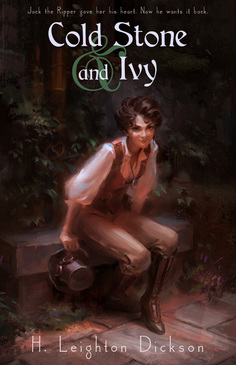 I must admit it took my breath away, just a little, to see the preorder status for COLD STONE & IVY on Kobo's main site. If you've been on this journey with me for any length of time, you know it's been a long and winding road. Conceived during a cold NANOWRIMO November, finished less than a year later, editing with consummate pro Erica Orloff, signing with Literary Agent X, spending 2 1/2 years treading water with Literary Agent X and ultimately firing Literary Agent X before finally signing a contract with Tyche Books in March 2015. Yes, it's been a long and winding road but wow, the things I've seen along the way. Now, as we buckle down into the final stretch, I'm enjoying the partnership that's coming into play. Me - an experienced and savvy indie author with tips and tricks up my sleeve. Them - a bold young boutique press who knows what they want and who brings fresh energy into the planning. The preorder for Amazon will come later but Kobo gets an advance for a strategic reason (which is all 'blah blah' to the average reader.) Trust me when I say it's rather clever. I take my 'blah blah's very seriously. On my end, I'm working out details for the book launch, which will involve a reading, music, apps and absinthe at a local steampunk gastropub. For Tyche, they're working on getting the books ready for the colossal Calgary Comic and Entertainment Expo April 28 - May 1. Soon, this huge adventure novel will be where it belongs - on the bookshelves and in the hands of readers. So, if you're a lucky Kobo user, here's your link to the front line - the preorder of COLD STONE & IVY! (Tea is grand, but a good port or scotch is the recommended 'spirit' for such bracing fare...) Kobo Preorder Here.
1 Comment
 It's always amazing to be reviewed by someone you respect and admire, but even more, someone you genuinely like. Indie author/blogger Elizabeth 'Liz' Munro runs the wildly popular West Coast Book Reviews and she happened to stumble on the Upper Kingdom series a little over a year ago. I'm proud to say that she loved them, and prouder to say that we've shared in a few online journeys together (joint promotions, etc). Here's her take on Book 3 in the Upper Kingdom saga, SONGS IN THE YEAR OF THE CAT! 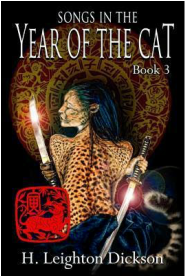 Review: Songs in the Year of the Cat by H. Leighton Dickson SONGS IN THE YEAR OF THE CAT is the Third in the Original Series by H. Leighton Dickson and picks up where TO WALK IN THE WAY OF LIONS leaves off. Ancestors are rising in the west and armies are moving from the North and the East. Captain Wynegarde-Grey has only just returned to the capital of the Upper Kingdom and he is immediately pulled into the conflict as cauldrons of oil are burning all along the Great Wall and the drums of war force all soldiers back into duty. But a mysterious woman is changing things, manipulating behind the scenes as Sherah al Shiva, ninjaah and sorceress, slips back into his life with companions that could divide the known world. This is a sweeping post-apocalyptic tale of genetically altered lions and tigers, wolves and dragons in a world that has evolved in the wake of the fall of human civilization. Half feline, half human, their culture blends those of Dynastic China, Ancient India and Feudal Japan where humans are legend and kingdoms have risen in their stead. Third book in the series, Songs in the Year of the Cat takes grand steps beyond the first two engaging books. H. Leighton Dickson brings her amazing characters to life for us once again. Each has grown and changed and although so much has happened to them, Dickson does a great job of keeping them true to their roots. While we follow the story in the Upper and Lower Kingdoms, the chapters alternate with the telling of Kerris and Fallon's story with the ancestors. I don't know which had me more anxious. All I could reassure myself with was the fact they made it home. Didn't help. Didn't like what happened to them. If I wasn't so darned attached to those two then Dickson wouldn't have had me in such knots. Year of the Cat continues to weave many diverse characters, peoples and their tales together while keeping the story focused and very, very engaging. One of my biggest regrets with this series is I can't read it again for the first time. Few stories make me feel that way. This volume fills us with tales of great battles, challenged relationships and reunites the characters separated in book two. H. Leighton Dickson found new ways to break my heart and give me hope. Inside her astonishing world, she exposes the prejudices of the cats, dogs and monkeys yet leaves the individuals in the story with the choice to overcome them or not. Night after night as I read I cheered and cursed, such is the way of this book. In the end, I clapped and I shed a few tears. Giving a book like this a great rating is easy, saying why is hard. Songs in the Year of the Cat gave me all the feels and pulled me along on a fantastic journey. Sequel? I'm so glad there is a sequel and hopefully more than one. My dear cats face even bigger trouble and I really, really need to know what happens. Thanks, Liz, for that amazing review. More than once, you've brought me to tears. You'll be the first to hear about Book 4, SNOW IN THE YEAR OF THE DRAGON, when it comes out! Now, time for tea. To check out more of Liz's reviews, go to West Coast Book Reviews HERE! Buy SONGS on Amazon Here or Chapters/Indigo Here! Oooh, I get to share a blog interview from another author about me. Um, is this the part where it gets weird?
"It’s always a pleasure to chat with an author that you respect and admire. Today I have the honor of interviewing H. Leighton Dickson, author of the Tales of the Upper Kingdom fantasy series and the upcoming Victorian adventure novel Stone Cold and Ivy. I’m a huge fan of her fantasy novels with sweeping adventure, dynamic characters, and unique blend of Chinese, Japanese, and Indian culture and myth. I had a lot of questions for her regarding her novels and the state of the publishing business. I’m sure you’ll enjoy her answers as much as I did. Let us know a little about your journey to become a writer. What is it that compelled you to write your Upper Kingdom series? Dickson: Um, good question. I’ve always written. Even when I was a little kid, I wrote. I actually wrote a book when I was thirteen – a full-length novel loosely (okay, not so loosely) based on CALL OF THE WILD by Jack London. I received an offer to publish from a Canadian publisher but my parents thought I was too young! I’m also an artist and penciled my way into New Talent Workshop with DC Comics, where I started TO JOURNEY IN THE YEAR OF THE TIGER as a graphic novel. I had the whole story plotted out years ago. That’s very cool to get an offer so young. You could have been the first Christopher Paolini! Let’s talk about the setting of your novels. Your story combines various elements of Eastern cultures and mythology. What is it about that particular region that fascinates you? Dickson: I’m not sure. It did morph from a more Western Fantasy base into the very Eastern-influenced culture that it became, but I honestly don’t know when or why that happened. I think I had always had the title in my mind and at one point, it was a light-bulb moment. “Duh, Year of the Tiger is Asian!” My son is also an anime buff (I was too, back in the day when Star Blazers was ‘Japanese cartoons’)As I got older, I began to enjoy the complexities of Asian cultures, and when I started writing Tiger again as a novel, it began in the Himalayas and just grew from there. Your series features animal/human hybrids as main characters. Did your background in zoology have an effect on your creations? Dickson: Absolutely. My specialty is predators. I know how they think. I’ve wrestled tigers (okay, she was tame, but still), I was chased by lions, I hand-fed foxes. I used to love the film series of the Planet of the Apes (original – yes, I know I’m dating myself!) and would often think about how the chimps, gorillas and orangutans were portrayed as different archetypes. That stimulated me to think about how cats would be as human hybrids. Lions would be noble, but a little vain. Tigers would be all-around good chums. Cheetahs would be sexy and aloof. You get the idea. Plus, I’ve never seen a good werewolf in a movie. I could SO do a good werewolf. What stands out the most about your writing is the fascinating character development, in my opinion. How did you approach your character creation, and is it a conscious effort to create such dynamic clashes of personality? Dickson: Ooh, really good question! No, I don’t think I ‘set out’ to write tension. I think I just have a really good handle on the characters. I see them as people. I have actors cast in my mind. I hear their voices, see their body movements and build conversations around that. Throw two or three of them in a conversation or situation, and they just take it and run. Sometimes, I would surprise myself with how things would end up, but literally, it is a case of the characters writing themselves. A perfect example is Joss Whedon’s Avengers movie. Throw all of those characters in a room and write what happens. It won’t be tea and crumpets. Do you purposely create flaws in your characters, or is that more of a subconscious thing? Dickson: Again, ditto the above statement. I didn’t intentionally create flaws but all people have flaws. I love the flaws in people – I am a true Captain Kirk at heart. It’s what makes us human. And I think it’s the humanity in these cat people that is the most appealing thing about the series. Do you have a favorite character? If so, who is it? Dickson: Mmm, I do love them all but for me, I loved Kirin the most. I loved his journey, from Mr. Perfect, having it all, to the man he becomes through all of it. I feel at home writing him, although I am far more like Kerris or Fallon at heart. I loved how Rah (Sherah, but I call her Rah) grew on me. I loved to write her. And Ursa. She was the most fun by far. My inner moral compass is Sireth, always right and knowing it. But Kirin, poor Kirin, wonderful, strong, noble, tightly-wound Kirin. Yep, probs him. I think Kirin was my favorite character as well. In a way, the entire ‘journey’ was his own as far as his growth as a character. Speaking of which, there are many surprises for the reader in this series, but what caught me off guard was the surprisingly brutal climax of book two. I haven’t been that shocked since reading Game of Thrones. When it comes to writing such scenes, do you find any level of difficulty? Dickson: I kind of knew how I wanted it to go and I didn’t want to shy away from the brutality of what happens to the characters. At the same time, I wanted the reader to feel it, feel the horror and then the healing that begins and how. I think I was careful not to be crude or shocking for the sake of shock but I really put myself into those particular character’s shoes (or boots!) and wrote with subtlety and emotion. People live with all manner of trauma and I admire the strength of the human spirit, the deep inner drive to survive no matter what the obstacles (there – another Captain Kirk moment!). Also, I wanted to see what it would be like for a character like Kirin to begin to live with what he might call a handicap, and not only live, but triumph. There is a science fiction twist intertwined with the story that you pull of quite nicely. Did you intend to include that from the beginning? Dickson: Yes, even back when I had penciled the first pages of what was then a graphic novel, Sireth was being awakened by a satellite. I always thought that was a cool concept. What was the hardest part about writing this series? Dickson: Honestly, the sci-fi! I can totally write the fantasy elements, the sociology, the philosophy, the zoology, but the tech? I’m so not a tech person! I depended on my vast history of sci-fi movies, and my son and a good friend who are tech geeks! Although, while writing Songs in the Year of the Cat, I began to get into it and sort of regret not spending more time in NorAm with the Ancestors. It was my first experience with a deadline, and I missed having months and months to mull and create. We will definitely correct that in Bones. I know I’ll look forward to that, although I have a feeling the Ancestors will bring a whole new batch of problems. The third book leaves the door open for more installments. When can readers expect a sequel, and where will the story go from here? Dickson: Yes, I have 6 novels (so 3 more) planned in the series, then two more full-length prequels. The story will involve a large battle for the right to be free, basically. Free of the Ancestors’ reins and yokes. I’m really big on social equality and justice issues. I’m half finished SNOW IN THE YEAR OF THE DRAGON, so it should be out likely by the end of this summer. SWALLOWTAIL & SWORD is a book of short stories based on the lives of the main characters before they come together in TIGER, so that’s a great way to get your Upper Kingdom fix until SNOW comes out! QUESTIONS ON THE INDUSTRY You self published the Upper Kingdom series, but you’re now represented by a literary agent for your next novel. Tell us a bit about the pros and cons of both avenues. Dickson: It’s been a very interesting road, that’s for sure. I tried for a long time to get an agent with the Upper Kingdom series, but I guess they were just too different for traditional publishing. I was hearing interesting stuff about self-pubbing, so I decided to put them up, to see if people would actually read something like this. And I was pleasantly surprised at the sales. Slow at first, but building steadily and steadily until I was able to start paying for bathroom fixtures and little trips with my earnings. But still, a part of me really wanted the validation of being traditionally published. So I took up the NaNoWriMo challenge and started a new work one November, wrote over 50,000 words and just kept going. It was a really strong story – over 165,000 words (that’s like a 700 page novel!) I sent the first chapter off to Erica Orloff, a professional editor and she went bananas. Literally, she loved it. With her help, I was able to draft a pretty great query and synopsis and within months, I had an offer of publication from a small Canadian press and offers galore from agents. I chose an agent who worked with a high-profile agency in New York and thought I was all set. Long-story-short, after 2 ½ years, I fired that agent (for reasons I can’t explain because I’m Canadian and very polite) so COLD STONE & IVY went to Tyche Books in Calgary. It’s coming out this April and I’m very excited. It’s very different from self-pubbing, probably a little more frustrating, as it takes sooooo long and so much revision and so much thought and so much ‘compromise’ (we won’t talk about covers yet) but then, I believe I have now an incredible book as opposed to a really good one. I have to make myself trust the industry, which is difficult when you have an indie spirit like me. But I do know that being a hybrid is the best way to be and once COLD STONE & IVY hits the markets, readers will go, ‘Hmm, what else has she written?” flock to Amazon with their crazy 70% royalties, after which I get wildly rich and buy a sailboat. I also have a standalone book entitled DRAGON OF ASH & STARS which is currently on submission at both Angry Robot Books and Gollancz (yes, of Game of Thrones fame), so I’m interested to see what happens there. I have a crazy-good cover done for that so if they pass, DRAGON will be self-pubbed by June, simply because I do love the control that self-pubbing brings. That will be three books out this year and that’s pretty amazing. So, sailboat? That is the plan. =) It sounds like a great plan to me. Do you think there’s a different perception of female writers in the fantasy genre, or has the playing field been leveled? Dickson: I would have said the field has leveled before I received a rather sexist review on Amazon. It made me very angry, so angry that I blogged about it. (http://ow.ly/oRfgP) The reviewer basically said that since the characters began to fall in love, and there were ‘jealousies and romantic entanglements’, that is was a romance and thus, a very good read for female readers. I argue that ‘jealousies and romantic entanglements’ are a part of the human experience and they in no way eclipsed the plot or story arc, which is ultimately, racism, bigotry and prejudice. There is still prejudice in all human experience, writing included. It’s frustrating and stupefying but I choose to defy it in my own way because that’s also the human experience. Thank you, Captain Kirk! Anyway, all ranting aside, I do think the field is better, especially with the recent successes of female writers like Suzanne Collins, Cassandra Claire, and of course trailblazers Meyers and Rowlings. A story is a story. If it’s good, it shouldn’t matter who writes it. Did you follow a particular plan for promoting and marketing your books? Dickson: Honestly, I don’t do anything except alternate the books on KDP’s free promotions. Four books are great because if someone buys one and likes it, then they’ll most likely buy the other three. They could, of course, wait for them to go free as well, but honestly, what reader wants to wait for a book for an unknown amount of time just to save $3.00! Readers are voracious hoarders. Also, I was able to bundle the first three books in a ‘Box Set’, which gives me 5 entities on Amazon at the moment. With the free promos, that’s almost 1 free item every 2 weeks. It really does work for promoting books in a series. Once my next 3 books come out, that will be 7 under my belt. The more you write, the better you write, and that is so good for sales. Good reviews come in because of that, and naturally, good reviews drive sales as well.What’s your view of the future of publishing? Do you see self-publishing eventually taking over, or will the best option be a hybrid approach like your own experience? Dickson: I have no idea what the future of publishing is. It has to change. Amazon is not going away and they have totally changed the industry, for good I believe. It is just like globalization. You can slap tariffs on something from China but in the end, you just have to offer a different and better product if you want to compete. Originally, the Sundance and Toronto Film Festivals were small, indie events, eclipsed by Cannes, the Oscars and Golden Globes. Now, who DOESN”T want to be seen at Sundance, or TFF? Indie is cool and smart and trendy. But the market IS a global one, and it’s very ‘free market’ minded. It is the American way, isn’t it? Good is good, and will rise. Of course, crap is popular too. It will always be. It is, after all, the way of things. =) Any advice for up and coming writers? Dickson: Um, this might not be popular, but get better at writing. Learn grammar, sentence structure, pacing, tension. Learn, learn, learn. And take your time. Don’t write, ‘The End’ and slap it up on Amazon. It is quite likely very bad. Reread and reread and reread. Fix it. Edit it. Chop it. Lengthen and Strengthen it. Then leave it and percolate for a while and see if you can think of ways to give the ending more Wow, make the characters more complex, give the story a twist and write your way out of it. Think, ‘what would I do if this happened to me” and then have your character do it. Don’t take short cuts because your writing will be false. That sounds like sound advice to me. Want to know more about Ms. Dickson? Be sure to check out her official website, or simply run to her Amazon author page and dive into her books. Trust me, you’ll be glad you did." Done. Thanks for reading. Bard is pretty amazing so um, go read his books. All of them. Go now. K, bye. ;) 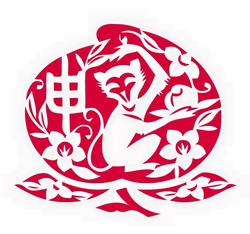 Today marks the first day in the Chinese New Year of the Monkey. According to Chinese Five Elements Horoscopes, "Monkey Years contains Metal and Water. Metal is connected to gold, whereas water is connected to wisdom and danger. The Monkey is a smart, naughty, wily and vigilant fellow, and therefore, you need to outsmart the Monkey if you want to make and keep any money this year. Metal is also connected to the Wind, which means events will change very quickly. Think twice before you leap when making changes for your finance, career, business and relationships." It's interesting for me, then, that the fourth novel in the Upper Kingdom series is called SNOW IN THE YEAR OF THE DRAGON. Here, SNOW has a double meaning. With Sireth and Ursa back in Pol'Lhasa, Kirin, Kerris, Fallon, Rah and Swift in Lha'Lhasa of the Eastern Kingdom and Setse and Yahn Nevye traveling north in the Lower, our team is divided and facing hostility at every turn. While it may be spring in all three Kingdoms, it is by no means a sweet spring and there is still some bite left in the winds of winter. But also, we journey into the close-knit and insular ranks of the Snow Guard and the Court of the Rising Suns. We learn that while the Snow are brilliant, they are also brutal and the leaders of the Nine Thousand Dragons will be hard-pressed to get out of New Lhasa alive. Usually celebrated by a dancing lion, I hope you enjoy this first day of the Year of the Monkey! Illustration by Alle Page
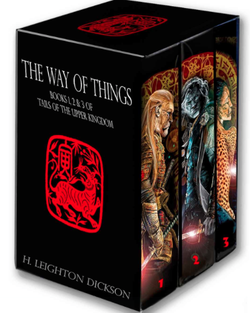 This weekend (Feb 6/7), the Upper Kingdom Boxed Set - THE WAY OF THINGS - will be on sale for $0.99. That's a lot of fantastical reading for less than a mug of hot, sweet tea. But the really great thing is the fact that mine is not the only set on sale! Whatever your pleasure, whether it be elves, gryphons, shifters, aliens, dystopian futures or paranormal fiction, you can find it here - click for amazing reading adventures! Indie authors have come together to bring a crazy amount of books for your reading pleasure, so pick up a boxed set or two, grab a cup of that hot tea, kick back and have a great weekend! Science Fiction & Fantasy Giant Box Set Sale! 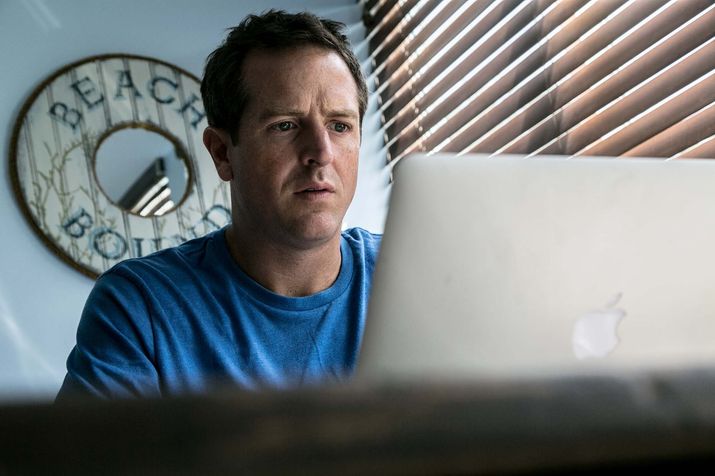 As promised, here is the article by Indie bestseller, Hugh Howey - Advice to Aspiring Authors. I found it very grounded and helpful, even at this stage of my career! Hugh Howey/The Wayfinder My Advice to Aspiring Authors POSTED ON MAR 14, 2013 | WRITING "Yes, that’s an ambitious title for a blog post. It might even be seen as egotistical (it feels egotistical to me). But I recently did an anniversary AMA on Reddit, and this question came up over and over again: “What advice would you give an author just starting out?” It was too big of a question to answer during the AMA (over 700 comments!), so I promised a blog post. I’ll start by knocking the ego right out of the lungs of this thing and say that what works for one author may not work for another. I’ll also say that this is a massive topic and could easily lead to me writing a book. Not that I will. For both of these reasons, this blog post is going to ramble and often contradict itself. Such is my nature and the nature of the topic. First off: If you want to become a writer in order to be rich and famous like me, that’s a bad idea. It isn’t why I started writing, and it isn’t why you should start writing. You should write because you love it. But I imagine you’ll want an audience (what artist doesn’t?) And so my advice is geared toward helping authors get to the end of their manuscript, polish it to perfection, and then gain the widest readership possible. This is the best you can hope for. I think it’s possible for every writer who gives it their all. To begin with, you need to write. This seems axiomatic because it is. The only way to amass a pile of words into a book is to shovel some every single day. No days off. You have to form this habit; without it you are screwed. I’m going to assume everyone who keeps reading already has this down. If you don’t — you won’t make it. My best advice on how to form this habit is twofold: Get comfortable staring at a blank screen and not writing. This is a skill. If you can not write and avoid filling that time with distractions, you’ll get to the point where you start writing. Open your manuscript and just be with it. Secondly, learn to write rough. Stop caring about spelling and sentence fragments and plot holes and grammar. Get the story down. Listen to the dialog and try to keep up with your fingers. Get to the end of your manuscript and THEN worry about the quality. If you can master the art of powering through to the end of your story, you are on your way. When I finished my first novel, I was on a complete high. This is when you think your book is the shit and you wonder why Oprah hasn’t called. You’re gonna be rich! This feeling lasted a few days. That’s when I started writing my next work. My father at the time wondered why I wasn’t spending all of my time promoting that first book. I told him I had my entire life to promote my works. I only had now to write. I stuck to that principle for years, writing and publishing several novels or short stories a year. I wrote a variety of genres and with a slew of styles and voices. 1st person, 3rd person, fiction, horror, sci-fi, novelettes, short stories. I also read a wide variety of works, but hardly ever in my genres. I read literary fiction and history, non-fiction and science. I try to read the newspaper every day. My father now agrees with this approach and sees the value of having a dozen titles available. This is going to sound strange, but you are MUCH better off with your 10th work exploding than your 1st work. You’ll never have quiet time to crank out quality material ever again. And when your backlist matches the growth of your first breakout, you’ll do very well for yourself. Be patient. It’s been said by many others, but I’ll repeat it here: self-publishing is a marathon, not a sprint. Now would be a good time to explain the advantages of self-publishing over traditional publishing. When writers ask for advice, they are often asking how they should proceed with their completed manuscript. I’m going to explain why every author should begin their writing career self-publishing, even if their dream is to be with a large publisher. There’s a lot to say. Bear with me. Your manuscript won’t change. This is the biggest logical fallacy I see in the self vs. trad debate. The idea seems to be that if you self-publish, somehow your work drops in quality. It’s the same work. The words won’t change because of perceived association with what else is out there. Querying an agent won’t make your manuscript better. Self-publishing won’t make it worse. It’s either a story that appeals to readers or it isn’t. Know your gatekeepers. Appealing to readers is the endgame. They want story over prose, so concentrate on that (aim for both, but concentrate on story). Agents and slush-pile readers are often the opposite, which is why they bemoan the absence of literary fiction hits and cringe at the sale of Twilight, Dan Brown, and 50 Shades. You are writing for the reader, who is your ultimate gatekeeper. Get your work in front of them, even if it’s one at a time, one reader a month or year. Publish Forever. Working at a bookstore was a dream job but also a sad job. I saw how books sat spine-out on a shelf for six months, were returned, went out of print. That’s a narrow window in which to be discovered. If you self-publish, you will have the rest of your life (and your heirs’ lives) to make it. Your print-on-demand books will always be available. Your e-books will always be available. You can keep writing and promote later. You are building your backlist. Think about this for a moment: The self-pubbing revolution is in its infancy. The people writing and publishing today have had no time to be discovered. It’s a marathon. Own your work. The chances of a book blowing up are slim whichever way you go. I would say the chances are minimally the same, and the odds may now be tilting in favor of self-published works. If you blow up, do you want to own your rights or have someone else own them? Do you want to be making 12.5% or 70%? Remember, the chances are that you’ll never have a mega-hit. Traditional publishing will not increase those odds. With the 6-month window, I’d say the odds are 1/100th what your work might do in 50 years self-published. You are the Publicist. The reason you won’t blow up just because you got a traditional contract is that nobody will promote you. The first thing your publisher will explain is the need to form an author platform (I’d be shocked if anyone still gets publishing deals without already having a robust one). Houses have too many authors to promote all of them. They choose a select handful based on the excitement around a debut manuscript (rare) or the perennial bestsellers (more likely, but still rare). If you want to earn a living as a writer, which I’m assuming the people asking for my advice are, you are going to have to be more than a writer. You will be an entrepreneur and a publicist. Or you won’t make it. Know the industry. I know things about publishing that my publishers don’t. Not everything. And I don’t know more than them (I learn from them every day). But by being a self-published author, I come into traditional publishing armed with experience that they don’t have. I understand algorithms and Amazon categories. I understand the importance of metadata. While at Digital Book World in January, I listened to publishing execs and marketing specialists speak excitedly about what we’ve been posting on Kindle Boards for over a year. I know what media mentions drive sales and which ones are merely for show, partly because I have realtime data that publishers don’t have. Partly because I don’t have biases from a media age that has long passed by. You want to be a writer for the art of it? Forget the industry. You want to earn a living? Study it. I’m not the story. I’ve been hammering this point over and over, and people are finally starting to listen. The outliers are not the self-publishing story. It’s the midlisters. I’m begging Amazon to release a different set of stats than the ones currently bandied about. They advertise how many bestsellers and blockbusters they have. I’m dying to know how many people are making $100 a month, $300 a month, $500 a month. I wager there are thousands and thousands of writers making $1,000 a month. That’s the real story, not me. Stay tuned. Be a pro. The writers who take this seriously are the ones making money. They do all the things above, but they do something more. They approach this like a little more than a hobby. It’s a second job, one that you can love and work hard at at the same time. Pros read up on grammar. They read books with an eye to what works and what doesn’t. They commune online at places like KindleBoard’s Writers’ Cafe. They set goals for how much they’ll publish in a year. Five years from now, these pros will have 10-20 works available. They only need to sell 250 – 500 books a month to earn a supplemental income. Ten books a day across twenty titles. That’s the longterm goal. Network and be nice. I can’t stress this enough. Just being around other writers will inspire you to be a better writer. Join a writing group (in person is better. online if you must). Go to writing conferences. Go to writing camps. Take classes at your local university or community college. Join a forum or two. Participate in NaNoWriMo. And be nice to your fellow writer. Making it as an author isn’t easy. The last thing we need to do is make it harder on each other. You are a start-up. I just participated in SXSW Interactive in Austin, a place where everyone is looking to start up the next great business. The next great business is you. I laugh when people bemoan the idea of spending $2,000 to self-publish a book. Personally, I didn’t spend a penny until I was already earning enough to quit my day job. But I don’t recommend this for everyone. Invest in your book with editing and great cover art. There are two ways to think about these expenses, and both methods make the costs seem trivial. In one, you are engaging in a hobby far cheaper than just about any other. Your neighbor will buy a camera, parachute, gaming PC, scuba gear that costs more than your book. Will their hobby ever make them a penny? Yours will. The other way to look at it is from a business perspective. Name me another business you can start up with a total cost of two grand that will guarantee at least some earnings (your mom’s gonna buy a copy, right?) You are creating a product that never rots, never rusts, never expires. It is distributed worldwide by the largest retailer in the mulitverse. You control the price. Shipping is free and immediate. You can market it forever. Your margin is 70%. You’ll never need to write it again or spend another penny on it. For Pete’s sake, can it get any better? The stigma is gone. Self-publishing is the beginning. For many, it will be the end. The moment the stigma disappeared among traditional publishers (i.e. they began signing already-published books to major deals) it meant the top-down approach to publishing flipped upside down. Think about it. Self-publishing used to mean the death of a book. Now, traditional publishing is the more likely death of a book. This is possibly the most important thing I’ll ever explain. Follow along. The vast majority of books traditionally published never earn out their advance. They go out of print. They are now dead. This never happens to a self-published work. It can only go up, either in sales or by being picked up in a deal that you choose. The top-down approach is one where you leave options open. Self-publishing leaves all options open (it didn’t used to). Traditional publishing leaves almost no options open (this hasn’t changed). The day self-published bestsellers were mined for traditional deals, everything changed. Don’t trust people with old information who tell you otherwise. Those with the most experience in this business often have the worst advice. That’s not always true, of course, but the two do not correlate. Beware those who think they do. More obvious advantages. Self-publishing pays 70% royalties for the rest of your life. Traditional publishing pays 12.5% for six months (how long you’ll be shelved or weakly promoted). Self-publishing pays monthly. Traditional publishing pays twice a year and after quite a bit of initial delay. If you own your material, you can give it away, a huge advantage in building readership. Traditional publishers won’t do this for fear of competing with their other products (other authors). It’s also why they won’t promote you beyond that six month window. You are now their competition. You don’t want that. Again, this doesn’t mean you shouldn’t team up with a publisher if you choose. But do it from a postion of power. Give your work a chance (years and decades) to be discovered. Enjoy a trickle of earnings in the meantime (how many hobbies are free to engage in and buy you a coffee now and then?) Publishers aren’t the enemy; their contracts are. I don’t want publishers to go away. I don’t see them as the enemy. They do some wonderful things, and I love the people I’ve met in the industry. Love them. But their contracts suck because there has never been a reason for them not to suck. That reason has sprouted in the past two years. That’s how young all of this is, how new. We are winning small victories over non-compete clauses. Scalzi recently beat back a Random House imprint and made some change. Bella Andre got a print-only deal from Harlequin. Colleen Hoover got the same deal as me from S&S. Real change is happening, which will alter this debate once again. That’s a great thing. To sum up: The key to making it as a writer is to write a lot, write great stories, publish them yourself, spend more time writing, study the industry, act like a pro, network, be nice, invest in yourself and your craft, and be patient. If you can do all of these things, you’ll earn some money. Maybe enough to pay a bill every month. Maybe enough to get out of debt. Maybe enough to quit your job. Thousands of writers are doing this, and we are welcoming all comers with open arms." Great advice. What's the one that resonated most with you? 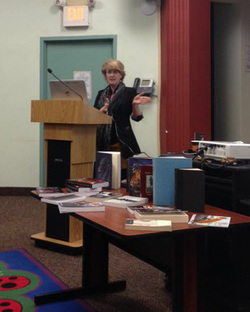 Last night, I presented my first workshop on the world of Indie publishing. Despite never having used Powerpoint before, I think it went well. Better than that, however, was the fact that the crowd seemed to think it went well! The room was filled with writers on every step of that journey from idea to publishing; some traditionally published, some indie, others weighing the options. I decided to make the presentation available to those that were interested, so here we go. Naturally it's just the slides and no voice (oh, that would have been a good idea!) but still, you get an idea of what we discussed and how it rolled out. Take a gander and let me know your thoughts! I'd love to hear what you think about the Indie Road!
|
H. Leighton DicksonAuthor. Zoologist. Imaginary Genius. Engineer of Fantastical Worlds. Master of None.
Archives
March 2024
Categories
All
|
||||||
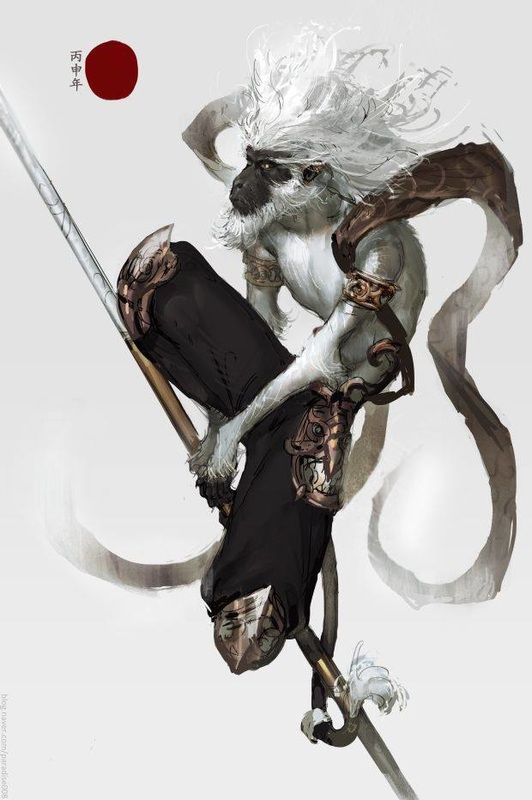
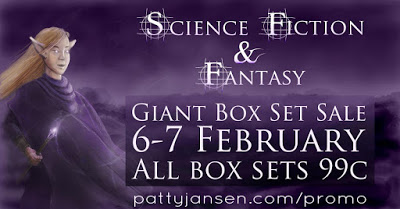
 RSS Feed
RSS Feed